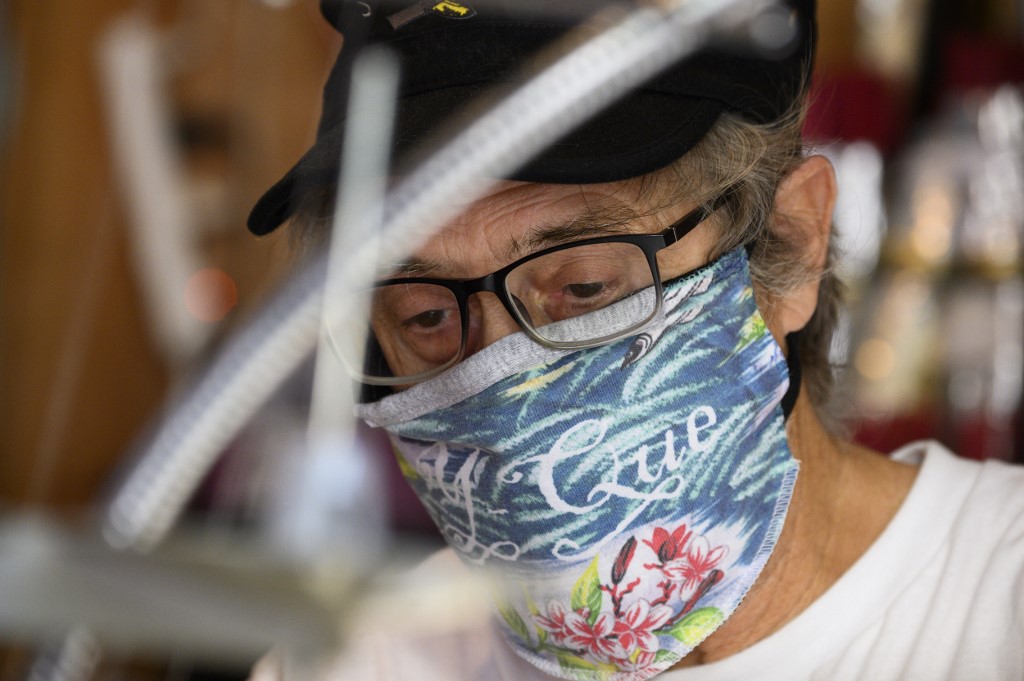(ATF) Hong Kong: Asian markets slid on Friday as investors worried about the severity of the economic damage from the coronavirus pandemic which has now claimed over 190,000 lives and forced governments to extend lockdowns.
Following India’s decision to extend the nationwide lockdown by nearly three more weeks to May 3, Philippines President Duterte announced an extension of the lockdown on Metropolitan Manila and half the main island of Luzon until 15 May.
This week has already seen governments in Singapore, Malaysia and Indonesia extend ongoing movement restrictions further while Japan and Thailand are planning extensions as well.
“All this boils down to suggestions that we are likely to see a much deeper economic slump in the region this quarter and a more stretched out recovery than we thought earlier,” wrote Prakash Sakpal, an ING analyst, in a note.
“Extension of containment measures around the region now endangers a steeper economic dip than we earlier thought. No prizes for guessing -most of the data releases next week could be the worst readings in recent history.”
Normalising economy
These challenges in normalising economic activity with no clarity on a proven vaccine means that the current quarter could see another wave of dire economic data.
“The pressure to lift the lockdowns more rapidly will now intensify as the economic damage becomes more apparent,” said Keith Wade, Schroders Chief Economist and Strategist.
“However, our current thinking is that the V shape recovery is too optimistic and we are likely to be revising down our forecasts for global growth in 2020 in our next forecast round. The recovery will be weaker and delayed, closer to a U-shape.”
Japan’s Nikkei 225 retreated 0.86%, the Hang Seng index dropped 0.61% and Korea’s Kospi benchmark ended 1.21% lower. Region-wise, only Australia’s benchmark made gains with the S&P ASX 200 climbing 0.49% higher supported by the commodities sectors, which received a boost from the overnight spike in oil prices.
China’s main stocks benchmark the CSI 300 fell 0.86% despite the central bank’s latest interest rate cut.
China’s PBOC cut its Targeted Medium-term Lending Facility (TMLF) by 20 basis points taking its one-year TMLF rate from 3.15% to 2.95%.
“The latest cut appears to simply be a move to align the TMLF with the lower interest rates on the PBoC’s other policy tools (including its MLF and reverse repo rates) rather than an easing move in its own right,” said Julian Evans-Pritchard, Senior China Economist at Capital Economics. “But with the economy struggling to get back on track and external headwinds intensifying, we still anticipate additional easing measures in the coming months.”
BoJ may buy more bonds
Meanwhile, Japan’s central bank will discuss shifting to unlimited purchases of Japanese government bonds next week, the Nikkei Asian Review reported.
“The BoJ also will weigh doubling yearly purchases of corporate bonds and commercial paper during the policy meeting Monday, in an effort to help cash-strapped businesses finance their operations,” it said quoting unidentified sources.
The central bank is currently aiming to increase its government bond holdings at a pace of roughly 80 trillion yen ($742 billion) a year and HSBC economists said given weak monetary transmission, the impact of a rate cut is likely to be limited.
“Fiscal policy is taking the lead to support the economy,” they said in a note published on Friday. “This may enable the BoJ to accelerate JGB purchases, with greater JGB issuance by the government.”
Credit markets are marginally weaker on the back of the overall risk-off sentiment but investment grade issues could start to flow as issuers have started making plans.
The Asian IG series 33 index is 2 basis points wider at 124/126 bps, widening a basis point from morning levels. Vietnam and Indonesia were the laggards widening by 4-5 bps. Indian financial sector bonds were the under-performers on the news Franklin Templeton’s India domestic credit funds would be wound up in light of the severe market dislocation and illiquidity caused by the Covid-19 pandemic,
Meanwhile, European stocks have opened weaker after a European Council meeting failed to agree on an economic programme and a media report said European Central Bank President Christine Lagarde told the 27 heads of government on video link that the euro-area economy could shrink by as much as 15% this year as a result of the pandemic and they “risk doing too little, too late.”
Also on Asia Times Financial:
Shenzhen Metro first through the online bond tunnel
Chinese regulators clamp down on ETFs
Bank of England warns of worst recession in centuries
Crude up again on Iran-US tension
Asia Stocks
· Japan’s Nikkei 225 eased 0.86%
· Australia’s S&P ASX 200 rose 0.49%
· Hong Kong’s Hang Seng index eased 0.61%
· China’s CSI300 fell 0.86%
· The MSCI Asia Pacific index retreated 0.42%.
Stock of the day
Shanghai Henlius Biotech rose as much as 6% after it said it had received good manufacturing practice certificates from Chief Pharmaceutical Inspector, a health regulatory body in Poland, indicating that the Company’s Xuhui Facility has met the GMP standards of the EU. It would now seek EU marketing approval for its trastuzumab drug, which had a $6 billion global market.
























